Rwanda plan and Illegal Migration Act will increase dangerous journeys and drive refugees underground

A new research report from the Refugee Council concludes that the Government's Illegal Migration Act and Rwanda Plan will not act as deterrent to ‘stop the boats.’

Rwanda plan and Illegal Migration Act will increase dangerous journeys and drive refugees underground
- Report finds that dangerous journeys to the UK will not reduce, but become even riskier
- People already more afraid to engage with services and will be driven ‘underground’, at risk of harm and exploitation, including serious risks for children
- Rwanda plan causing huge distress, panic and fear amongst vulnerable refugees
A new research report from the Refugee Council concludes that the Government's Illegal Migration Act and Rwanda Plan will not act as deterrent to ‘stop the boats’ and is already leading to refugees disappearing from contact with support organisations.
The report, based on research with 40 organisations supporting people in the UK asylum system including those working with people in northern France, finds that the Rwanda plan and the new legislation are more likely to result in people taking journeys that are even more dangerous, will drive vulnerable people underground, and are having a severe negative impact on people’s mental health.
Despite Government claims that the Act will deter Channel crossings, the research shows it is likely to have the opposite effect. With asylum claims automatically deemed inadmissible under the new laws, people trying to reach safety in the UK will have little incentive to remain in contact with authorities and will instead try riskier journeys to avoid detection on arrival.
This includes actively avoiding the coastguard and rescue agencies and trying to reach more remote beaches. "People are saying they will not stop coming: it’s better to die trying," explains one of the organisations working with people currently in Northern France.
The research also finds that people seeking asylum who are in the UK are already avoiding contact with organisations out of fear of detention and removal to Rwanda. One organisation reported that they had lost contact with nearly half of their clients.
People will face heightened risks of labour and sexual exploitation, and the research found that traffickers stand to gain more control over increasingly marginalised groups.
The report also highlights serious risks for unaccompanied children who arrive in the UK seeking asylum. While these children will not immediately face removal, this changes when they turn 18 and the duty to remove becomes applicable. The research found a high likelihood these children will disappear from local authority care as they approach their 18th birthday to avoid removal to another country, raising grave safeguarding concerns.
Despite the recent ruling from the Supreme Court deeming the Rwanda plan unlawful due to concerns over the safety of people seeking asylum, the Government is persisting in pursuing the plan and is bringing in emergency legislation to enforce the act. Organisations reported that the threat of being sent to Rwanda is already causing huge distress, panic and fear amongst refugees and that this is only likely to worsen. Enver Solomon, CEO of the Refugee Council, said:
This report is powerful evidence of the appalling human consequences of the Government’s desire to push ahead with the Rwanda plan and slam our door in the face of refugees in search of safety. “We know refugees are avoiding contact with vital services and face being exploited and abused by those seeking to coerce and traffic them. Children who come to our country alone seeking sanctuary will be trapped in perpetual fear and will disappear creating a serious safeguarding crisis. “We are very worried about the prospect of Channel crossings becoming even riskier, when we know all too well how deadly they already are.
The reality is that the Government’s plans are causing huge distress to vulnerable people and are pushing them into unsafe and dangerous situations. We urge the Government to uphold the right to asylum and refocus its efforts on expanding safe routes, reuniting families torn apart by conflict, and cooperating with our European neighbours to develop fair and compassionate asylum frameworks.
The research, conducted between June and August 2023, comprised an online survey of 40 key organisations in the sector, six online discussion groups with representatives from refugee organisations and legal practitioners, and semi-structured interviews with representatives from the voluntary and statutory sectors.



